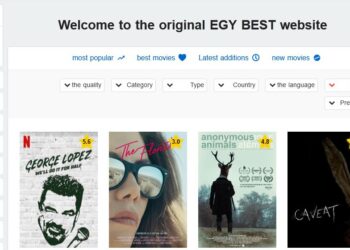1. Algorithm
Algorithm is defined as: “a process or set of rules to be followed in calculations or other problem-solving operations.”
This term is especially important to know and understand because it reminds us that SEO isn’t random or uncalculated. It’s about following a strict set of rules and optimising your website in accordance with those rules laid out by Google.
It’s about playing the game – properly.
2. Backlink
Backlink is an inbound link that points to your website from an external source. But, why is it important? Because without a healthy and balanced backlink profile, your website will struggle to rank well in Google.
Think of backlinks as “votes”. The more votes you have from quality and relevant sources; the more likely Google will be to trust you.
3. Black hat SEO
Black hat SEO refers to any methods or strategies that are manipulative and go against Google’s rules and algorithm guidelines.
Some examples include:
- Excessive keyword stuffing
- Plagiarising content
- Farming “cheap” low quality links (“buy 10,000 links for $200”)
4. Conversion
Conversion is another term that you should better understand. Remember, in SEO, it’s not enough to simply increase traffic to your website. If your website isn’t optimised well with an intuitive UX design and compelling sales copy, you’re going to lose a lot of potential business.
Proper SEO is all about conversions; turning those clicks into customers.
5. Analytics
Google analytics is an invaluable tool that enables you to track, collate, and analyse all of the movement through your website. How many people are visiting? Where are they coming from? How long do they spend on each page?
With all of these actionable insights you can refine your strategies and identify what is working for you and what is not.
6. Internal links
Internal links refer to any links that point from one page on your website to another page within the same domain. This could be as simple as directing someone to a frequently asked question or the contact page.
Proper internal linking is not only an effective means of improving the overall user experience and journey, but also bolstering your onsite SEO efforts.
7. Keyword
Keywords are like gold dust. Without proper keyword research and then targeting them on your website and in the content you create, your SEO efforts will go to waste.
What are people typing into Google when they are actively searching for the very products or services that you offer? What are the best short and long-tail variations you can work on for the best results?
Put it this way, failing to do keyword research and hoping to succeed with SEO is trying to shoot a moving target with a bow and arrow from 100 yards away with a blindfold on.
8. Meta descriptions
Meta descriptions are the little bodies of text that you see on a Google SERP (search engine results page) just below each hyperlink.
These are incredibly valuable and often woefully underestimated. Not only can you get your keywords in there for Google, but you can also use them as an opportunity to write short and snappy sales copy to increase your CTRs (click through rates).
9. Organic traffic
Organic traffic is what SEO is all about: hiring a digital marketing agency to optimise your website in such a way that improves your overall online awareness and thus actively attracts ‘organic’ clicks, consistently, without having to pay every time.
Unlike PPC ads where you have to pay for each visitor; SEO attracts organic traffic that you effectively own.
10. People first content
Finally, let’s talk about ‘people first’ content. In Google’s recent algorithm update they introduced an emphasis on rewarding content that provides a significant amount of value to their users.
In other words, if you want to succeed with your SEO efforts, you need to go above and beyond to deliver authentic and genuinely helpful content that your ideal customer will find irresistible.
Commit to that and you will steadily climb the rankings and ultimately bolster your conversion rates significantly.






















